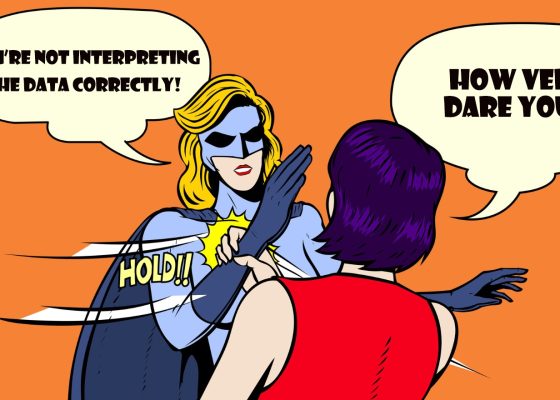Another week, another flurry of press releases from both sides of the private health aisle. It’s becoming exhausting.
I used to be a sports reporter. Seriously.
If you had told me 20 years ago that I would be spending a fair chunk of my working day trying to understand data from the Australian Prudential Regulation Authority, I would have laughed in your face.
Give me basketball box-scores or a time-spent-in-possession breakdown, any day. Sometimes I dream about those halcyon days, reader, I really do.
It shouldn’t be this hard but when the opposite sides of the aisle are as intent on not agreeing with each other as private hospital operators and private health insurers seem to be, then things get silly.
Every quarter – actually scrap that – every time anything happens in the private hospital sector, this maddening dance begins.
Hospital operators say insurers aren’t paying enough back to them, are earning obscene profits, and are ripping off their members.
Insurance companies insist they’re paying as much as they ever were, if not a little more, and what’s more, their profits are so not going into management salaries, so there.
It’s maddening, because both sides are right, and yet both sides are incredibly wrong.
Insurance companies are making more money, are charging their customers more, but are also putting more back into hospitals, although not enough to keep hospitals open.
The federal government is subsidising the private hospital industry to the tune of about $7 billion, but that’s enough either.
And private hospitals are doing a lot right and a lot wrong as well. They don’t pay enough to their staff, they refuse to bite the bullet on the digital front, and they keep insisting on being bought up by private equity firms that care about nothing but the bottom line.
When they’re not throwing wild inaccurate punches at each other, both hospital operators and insurers insist they are happy to keep talking, if only the other party would cooperate.
Related
In the meantime, people need to stop asking Mark Butler if the federal government is going to bail out Healthscope. It’s not going to. It never was going to, and it’s hard to believe it ever will change its mind.
Yes, I am aware I have asked the question myself, but safe to say, things have moved on from there.
But there are things Mr Butler can do, and he has intimated that he won’t wait indefinitely before forcing the parties’ hands with some well-placed legislative right hooks.
What form that takes – Catholic Health Australia yesterday suggested an independent body, like IHACPA, oversee the annual premium round process, perhaps encouraging the establishment of a National Private Price, for example – is to be seen, but the sooner the better, thanks.
It’s unlikely under a Labor government that insurers will get the chance to own hospitals, if what Mr Butler said this week is any guide.
“There is a question about the degree of vertical integration that is healthy in our market,” he said.
“Insurers are obviously the funders of the private hospital operations, funded through the private health insurance premiums of millions of Australian households.
“For a long time now we’ve had a position in Australia that the funders or the insurers should not also be vertically integrated into the delivery of care services.
“I know the Australian Medical Association and other stakeholders have a strong view about that.
“We would want to look at that very, very closely before we saw any further vertical integration between insurers into the delivery of care.”
Meanwhile, Healthscope is not the only private hospital operator in trouble. It’s just the biggest.
This week Toowong Private Hospital, almost 50 years in to providing a much-needed psychiatric service, announced it will close its doors on 11 June.
TPH is privately owned and operated by the Kratzmann family, it’s had the same CEO since 1997 – Christine Gee – and it sees 3000 patients a year and has just under 200 staff.
The Kratzmanns tried to sell the business recently in order to keep the doors open, but no luck.
So, goodbye TPH. How many more small operators will shut their doors before this is over? Brett Heffernan, CEO of the Australian Private Hospitals Association says he knows of eight close to the brink.
Whatever, the time is rapidly approaching when Mr Butler needs to put his Big Boy Legislative Butt-Kicking Pants on and get these two stubborn protagonists out of the boxing ring and on to the same page.
And with that mixed metaphor, I leave you. Footy to watch.




